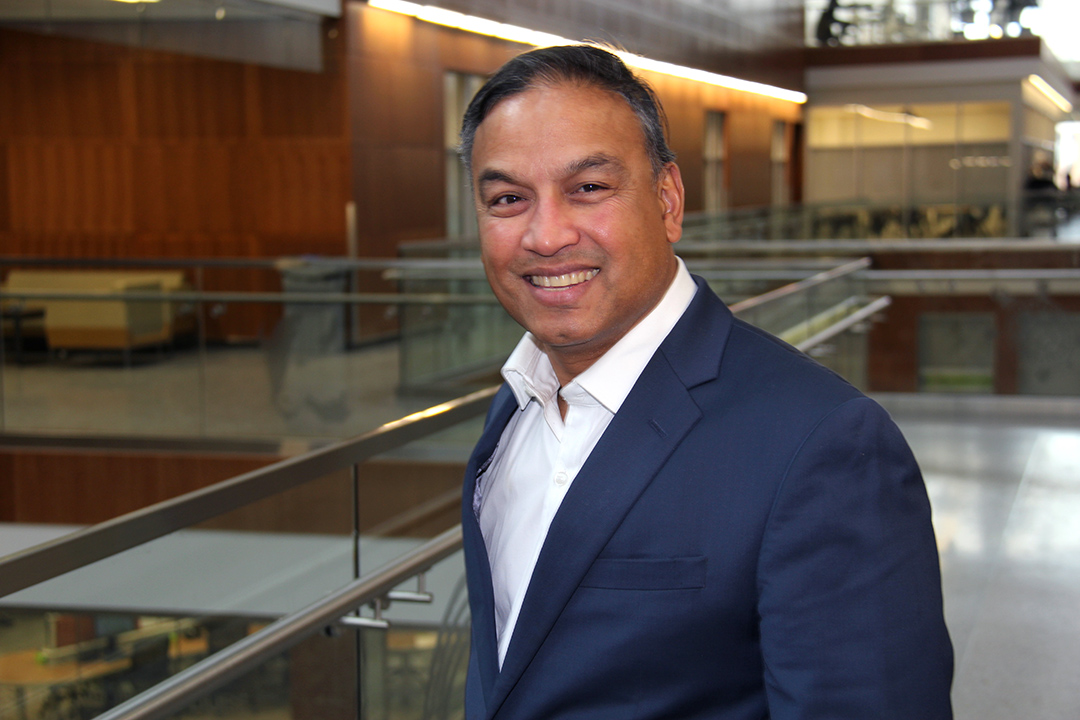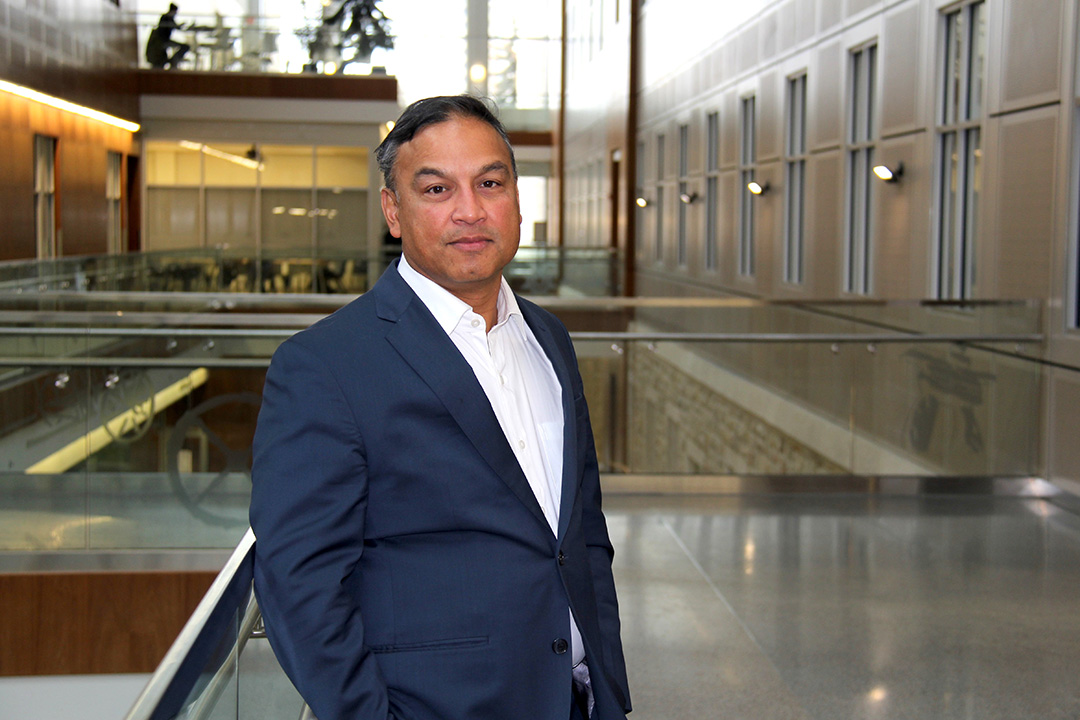
Global impact begins at local level for Muhajarine
Dr. Nazeem Muhajarine (PhD) felt his family always wanted him to go into medicine, but he decided to follow in his father’s footsteps.
By Kristen McEwen“He was a public health inspector for 35 years,” Muhajarine said. “I was raised in a family that was steeped in public health because of my father’s work.”
At the end of October, Muhajarine’s father passed away. His father played a significant role in how Muhajarine chose his career path as an epidemiologist.
Muhajarine is a professor in the Department of Community Health and Epidemiology in the College of Medicine, and director at the Saskatchewan Population Health and Evaluation Research Unit. His research primarily focuses on population level interventions, maternal health and early child development.
During 2019 Fall Convocation, Muhajarine received the University of Saskatchewan’s (USask) Distinguished Researcher Award. The award is given to individuals who demonstrate excellence in research and scholarly work; help train and educate students, post-doctoral fellows and staff; and contribute to research locally, nationally and internationally.
“It is poignant to think of (my father) as I received this award,” he said. “I think he would have been very happy.”
Growing up in Sri Lanka, Muhajarine often got to see his father at work, vaccinating kids and giving presentations about using mosquito nets to prevent malaria. Often, people arrived at their house seeking his father’s advice.
“I always wanted to work with communities,” Muhajarine said. “I became fascinated with the strength of communities and their ability to help individuals be successful and resilient in the face of adversity.”
While a neuroscience student at Oberlin College in Ohio, Muhajarine participated in a project funded by UNICEF in his home country. The purpose of the project was to provide clean water and sanitation to slum and squatter communities. Muhajarine’s job was to talk to individuals in these communities and gather data about their knowledge of, and satisfaction with, the project.
“I was amazed at how readily they welcomed me into their homes,” Muhajarine said. “I came away from that experience moved by the generosity of the people in those communities.”
Inspired by this project and his father’s public health career, Muhajarine earned his master’s in epidemiology at the University of Massachusetts before arriving at USask in 1990 to complete his PhD in interdisciplinary social epidemiology. As an epidemiologist, he has adopted the motto ‘Think globally, act locally.’ In his research, Muhajarine and his teams strive to improve families’ living conditions and create healthy communities.

While completing his PhD, he and his wife, Kathryn, had a daughter, followed shortly after by the birth of their son. Muhajarine’s research at the time was focusing on the importance of early childhood development.
“I was living that work at my home,” he said. “There was that personal connection, it wasn’t abstract. It was about my own children and wanting good neighbourhoods and a good world for my children.”
One of the projects Muhajarine is currently working on is the Canada-Mozambique Maternal Health project. Mozambique feels like a global project but it starts at a local level by working with women, providing needed transportation, infrastructure and health care to expectant mothers in 20 remote communities, he said.
Muhajarine noted that the impact the project has in these communities will reverberate to other places. By starting children on the right path, it will in turn have an impact society-wide, he explained.
“You have got to start locally, because that’s where we live.”

